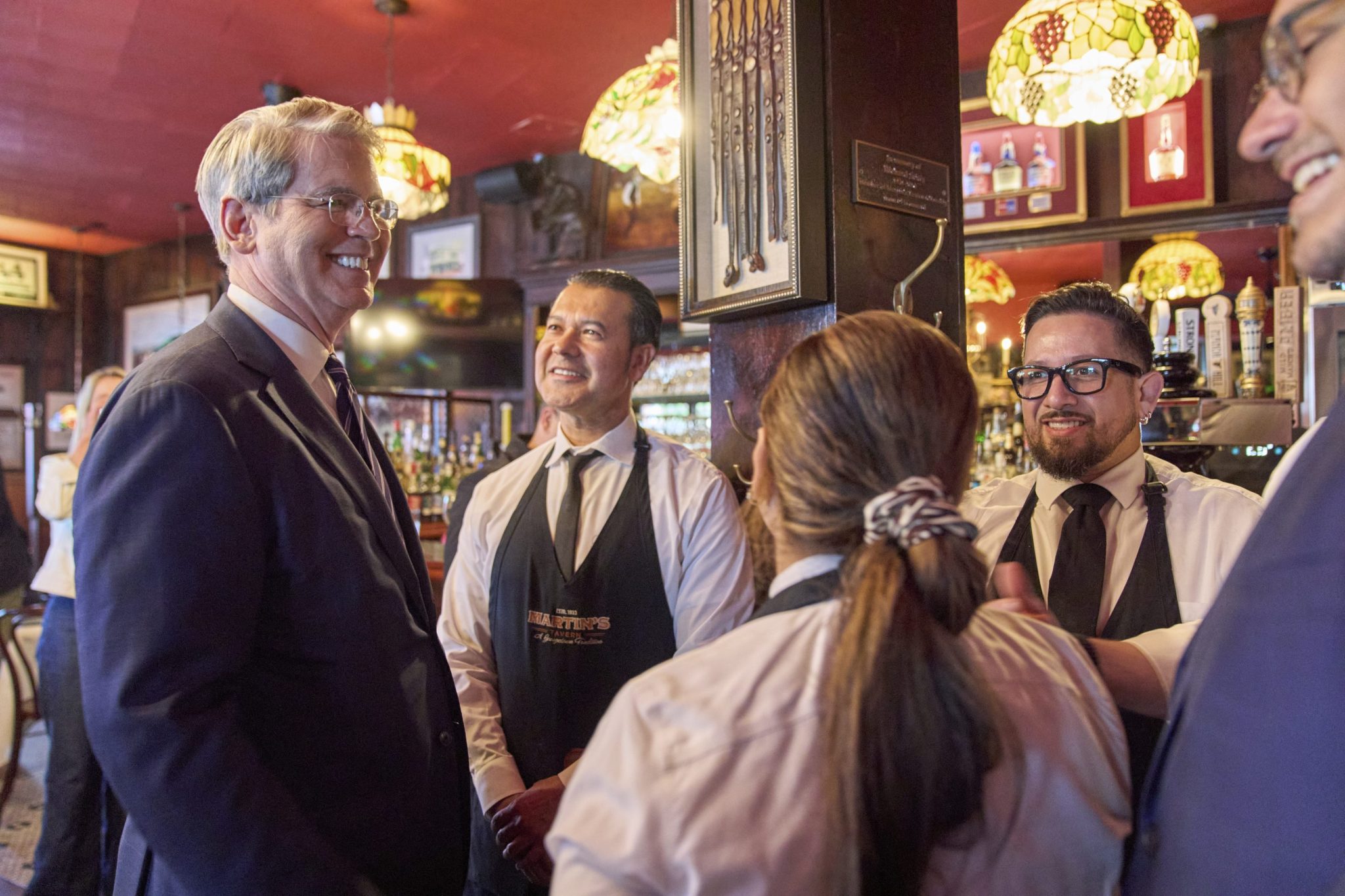
Golf caddies, blackjack sellers and home painters are among the many jobs coated underneath the Trump administration’s preliminary listing of occupations not required to pay revenue tax on their ideas underneath Republicans’ new tax cuts and spending invoice.
A bit extra sudden? Podcasters and social media influencers will even be excluded from forking over a portion of their ideas, in line with the listing launched Tuesday by the Treasury Division.
The supply within the regulation signed by President Donald Trump in July eliminates federal revenue taxes on ideas for folks working in jobs which have historically obtained them. It’s short-term and runs from 2025 till 2028. It applies to individuals who make lower than $160,000 in 2025.
The Yale Funds Lab estimates that there have been roughly 4 million employees in tipped occupations in 2023, which quantities to roughly 2.5% of all jobs.
The administration was required to publish a listing of qualifying occupations inside 90 days of the invoice’s signing. The full listing of occupations is situated on the Treasury Division web site.
They’re damaged down into eight classes, together with beverage and meals service; leisure and occasions; hospitality and visitor companies; residence companies; private companies; private look and wellness; recreation and instruction; and transportation and supply.
Amongst different jobs exempted from tax on ideas are sommeliers, cocktail waiters, pastry cooks, cake bakers, bingo employees, membership dancers, DJs, clowns, streamers, on-line video creators, ushers, maids, gardeners, electricians, home cleaners, tow truck drivers, wedding ceremony planners, private care aides, tutors, au pairs, therapeutic massage therapists, yoga instructors, cobblers, skydiving pilots, ski instructors, parking storage attendants, supply drivers and movers.
A report from the Funds Lab reveals that the consequences of the regulation can be small, on condition that tipped employees are typically decrease revenue. Greater than 37% of tipped employees, or over one third, earned revenue low sufficient that they confronted no federal revenue tax in 2022.
“The bigger and much more unsure impact would stem from behavioral adjustments incentivized by the invoice, akin to substitution into tipped employment and tipped revenue, which might improve the invoice’s general value,” states the report, which was written by Ernie Tedeschi, the director of economics on the Funds Lab.
Congressional funds analysts undertaking the “No Tax on Ideas” provision would improve the deficit by $40 billion by 2028. The nonpartisan Joint Committee on Taxation estimated in June that the information deduction will value $32 billion over 10 years.
Solely ideas reported to the employer and famous on a employee’s W-2, their end-of-year tax abstract, will qualify. Payroll taxes, which pay for Social Safety and Medicare, would nonetheless be collected together with state and native taxes.
Polling reveals People have panned the large invoice. Half U.S. adults anticipate the brand new tax regulation will assist the wealthy, in line with the ballot from The Related Press-NORC Heart for Public Affairs Analysis. Most — about 6 in 10 — assume it would do extra to harm than assist low-income folks.

